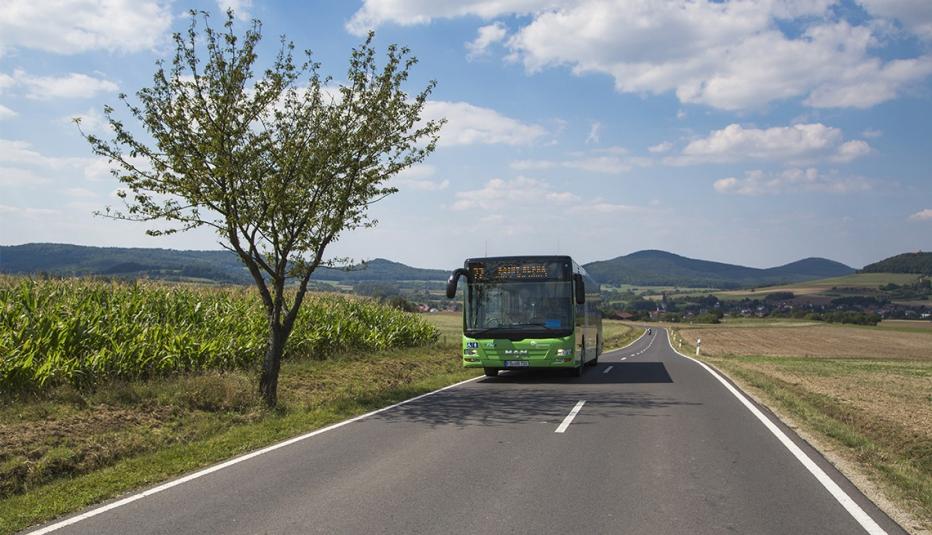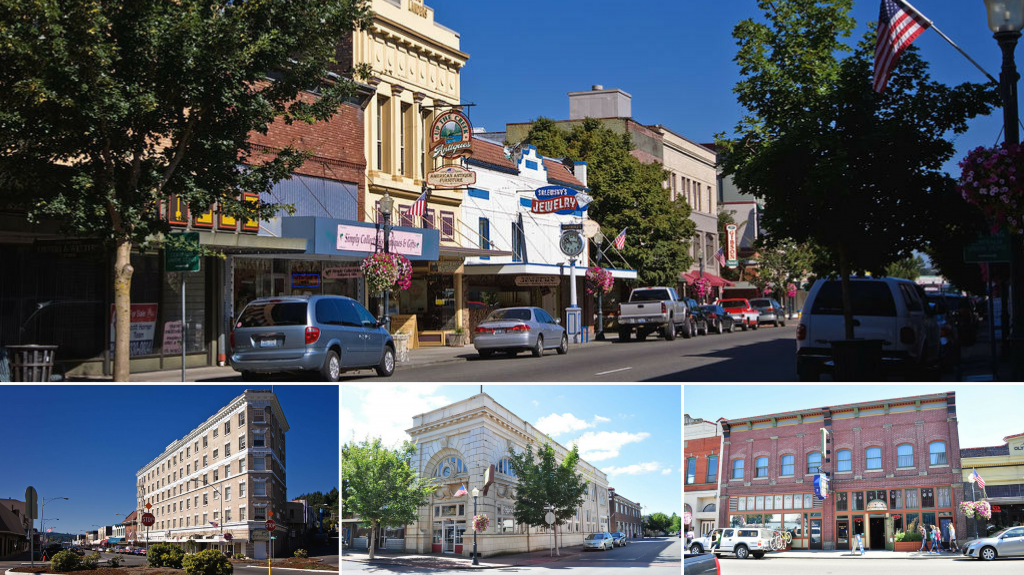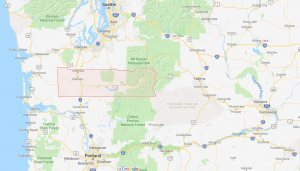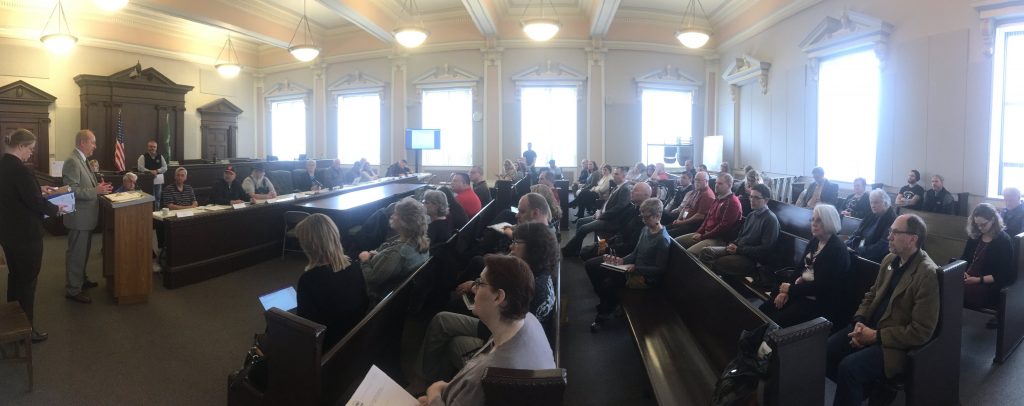
The role of transit in rural America: a case study from Washington State

 Top: Centralia Downtown Historic District; bottom from left to right: The former St. Helens Hotel in Chehalis; the original Farmers & Merchants Bank Building in Centralia, the Olympic Club Hotel/Saloon in Centralia. (Images: top and bottom left Steven Pavlov, wikimedia | bottom middle and right Joe Mabel, wikimedia)
Top: Centralia Downtown Historic District; bottom from left to right: The former St. Helens Hotel in Chehalis; the original Farmers & Merchants Bank Building in Centralia, the Olympic Club Hotel/Saloon in Centralia. (Images: top and bottom left Steven Pavlov, wikimedia | bottom middle and right Joe Mabel, wikimedia)
Some perceive public transit as exclusively an urban issue. However, rural communities and small cities rely heavily on transit as a key component of the transportation system—not just as a social service to those who cannot drive, although that is one factor. We hope this example from Washington State will inspire you to share stories about the role of rural transit in your community.
Share your rural or small city transit story here
About halfway between Portland and Seattle on the I-5 corridor sit the cities of Centralia and Chehalis. Chehalis is the seat of Lewis County and Centralia is the county’s economic center. Twin Transit serves these two cities, but not the rest of the Lewis County, a narrow rectangle that extends 65 miles from the crest of the Cascade Mountains at White Pass to the coast range near the Pacific Ocean.

Lewis County in red, with Chehalis and Centralia marked in the western part of the county. (Image: Google Maps)
Centralia and Chehalis (pop. of approximately 20,000 and 7,500 respectively) boast stately historic buildings and well-connected street grids. Centralia also has a four-year college, Centralia College, and an Amtrak station with service to Portland and Seattle five times per day. Both Seattle and Portland are less than two hours away by train, and an additional train trip in each direction will be added later this year.
Since 1998, the non-profit LEWIS Mountain Highway Transit has filled part of the gap in transit service in the more rural part of the county, by serving rural communities on the east side of the county between Packwood and Centralia.
“From its inception, LEWIS Mountain Highway Transit was an effort by White Pass Community Services Coalition to provide previously non-existent and much needed public transportation service for east Lewis County residents,” says founder and manager Doug Hayden.
The 85-mile route sees about 700 boardings per month and provides a critical connection for residents of Packwood, Morton, Mossyrock and other communities along Highway 12 to reach shopping, social services agencies, do business with county government, and attend Centralia College.
In the past year, however, Hayden announced that this transit service would have to end in 2019 due to changes in state transit funding rules regarding local match requirements. There isn’t enough local funding for the non-profit to keep providing the service.
If LEWIS Mountain Highway Transit’s critical bus line is canceled, many people along the route who have come to rely on the service will be stranded with few options for accessing medical appointments, shopping, and other necessities.
Crisis leads to action
As is often the case, impending crisis has led to action. Twin Transit developed a plan for adding the remainder of the county to the existing transit district. This would prevent the loss of service in east Lewis County along Highway 12 where many people already rely on it, and add service to other communities throughout the county where it is badly needed. Many leaders and community groups have rallied to support this plan, and in April all the jurisdictions (save one) agreed to put a measure on the November ballot giving Lewis County residents outside Twin Transit’s service district the opportunity to vote to be added. Under the plan, the remainder of the county would pay the 0.2% sales tax just as people making purchases in Centralia and Chehalis do now, and would see transit improvements in their communities in return.
 Transit conference where all jurisdictions (save one) supported putting a measure on the November 2018 ballot to expand the Twin Transit district to include all of Lewis County.
Transit conference where all jurisdictions (save one) supported putting a measure on the November 2018 ballot to expand the Twin Transit district to include all of Lewis County.
County Commissioner Bobby Jackson, who chairs the Twin Transit Board of Directors, has been an active leader on this issue, working to get support from the jurisdictions. “We have an opportunity to make a huge investment in our community’s future with expanding transit to the entire county,” Jackson said. “This will meet needs on so many fronts for our citizens.”
He’s driven by the need to make sure folks without options get them so they can get to work, and because he sees transit as key to the county’s economic future with businesses choosing to locate and grow where they know they will have access to a strong labor pool.
Come November, we’ll know the outcome of this ballot measure vote and prospects for future transit service in Lewis County.
Do you have a story to tell about the role of transit in your rural community or small city? Share with us so we can continue to educate decision-makers that transit is not just an urban issue!
Share your rural or small city transit story here


